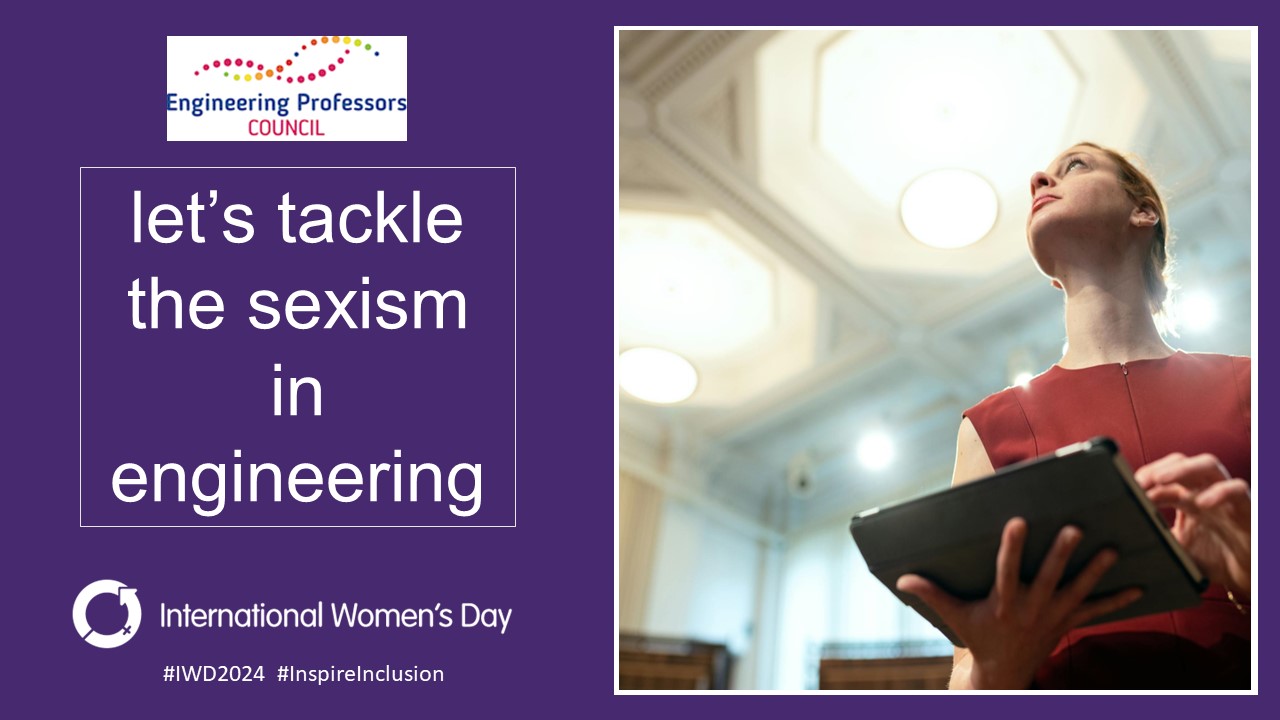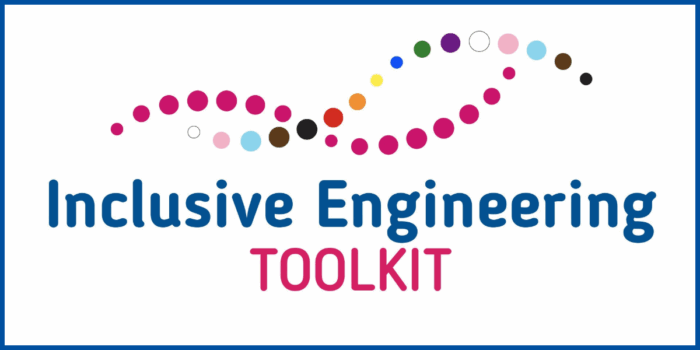Jessica Upton
You don’t need to look beyond the gender imbalance in engineering to realise that the sector has a problem. This International Women’s Day, I’d like to celebrate those university engineering departments who are working hard to tackle it. But I’d also like to spell out some of the key endemic barriers faced by women in engineering and outline what I think we need to do next.
I am an undergraduate student at the University of Manchester and have been working with the EPC to gain work experience in the data and policy domain. Over the past few months, I have been researching the gender imbalance in engineering. You can explore engineering data by gender in the context of admissions or enrolments using the EPC Data explorer.
Many EPC members have achieved the Athena SWAN Charter which recognises commitment to advancing the careers of women in STEM employment. The charter supports higher education institutions to identify and reflect on their areas for improvement in addressing problematic gender dynamics that operate within their institutions. It can be a vital tool for universities and departments to remove environmental barriers experienced by women and to explore how to shift to a culture that is equal and inclusive. The charter helps universities to look at equality legislation, good practice and the factors which lead to an equitable working environment.
But do we need to do more to overcome the manifestations of gender and academic pathway stereotypes systematic to the culture of engineering? Stereotypes are instilled in everyone from birth and subconsciously influence the way we act.
A recent ASPIRES project (a research initiative based at the UCL Institute of Education) identified stereotyping and microaggressions as the most common manifestations of sexism in education. Over 30% of women in the study said they had experienced sexism during their engineering degree course, most commonly from their male peers, and male students were repeatedly reported to question the legitimacy of their female counterparts, as well as ignoring and patronising them.
Women are steered away from engineering as a career option from an early age. The project found the career aspirations of those aged between 10 and 22 were most strongly associated with their experience in the classroom and educational environment. From as young as primary school age, girls have been discouraged from STEM subjects and pushed towards humanities and social sciences as a viable route of academia.
This cultivates a lack of confidence in STEM subjects. It appears that to achieve in such a ‘masculine’ field as engineering, women and girls need to be exceptional. In studies, when asked to assess their own abilities in maths, girls found their assessment to be lower than that of boys. However, they were performing equally in tests. Studies into science engagement, education and career aspirations among young people in England also highlight gender differences in perceived ability. The lack of role models further deepens their retraction from the subjects as it reaffirms the idea that women do not possess the qualities that get valued in engineering generally.
In a study called Why So Few by Catherine Hill et al, there was great emphasis placed on fostering the ‘growth mindset’. Belief in one’s own intellectual growth was found to be greatly beneficial to educational achievement. Negative stereotypes about female academic performance lowered their academic achievement, as well as their aspirations for the future. Encouraging the mindset that females are more than capable changes the culture of the classroom and influences their outlook on STEM subjects as viable option. The study found that this ‘growth mindset’ made a great change in female performance and subsequently, their self-image.
In higher education, it remains vital that teaching staff look out for signs of stereotypes manifesting themselves into self-doubt for women and girls. This might include in the context of entry requirements and course design, for example.
The behaviours seen in school and university are perpetuated in the professional sphere and are associated with women leaving the industry. In the early stages of my ‘fellowship’ (my research internship with the EPC), I read an article by Dr Melissa Marinelli on the barriers to women reaching senior roles in engineering, and similar points arose surrounding visibility and the influence of women’s voices not being valued by male colleagues. She detailed these as one of the many barriers to female progression in the industry.
The EPC is currently supporting UCL work on a similar study though our Policy and Research Director’s honorary research fellowship there.
So, what can we do about the gendered hierarchy that is limiting the potential of the engineering industry?
- Give a broader overview of what the field entails with introductory courses. If females know what to expect, they are more likely to understand that they can do it.
- Take women’s opinions into account, as the research shows that women are less satisfied with the academic workplace than men, so are more likely to leave it.
- Implement mentoring programmes to support women and offer role models.
- Ensure equal capability is made clear to tackle the notion of ‘natural giftedness’.
- Encourage the ‘growth mindset’.
- Encourage women and girls to be less critical and assess their capabilities more accurately.
- Understand that everyone has unconscious bias and take the test to see where your unconscious bias lies so you can identify it when it presents itself. https://implicit.harvard.edu/implicit/
- Address sexist language in the classroom: https://www.ucl.ac.uk/ioe/departments-and-centres/departments/education-practice-and-society/aspires-research/additional-reports-and-resources
- Work with Athena SWAN to achieve an award.
I’d like to hear your thoughts and comments on my insight.
Links and research used:
https://www.aauw.org/app/uploads/2020/03/why-so-few-research.pdf




